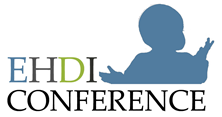| ABSTRACT INFORMATION |
| Presenter Information: |
| Presenter 1: |
Name: Kim Hamren
Affiliation: Listen and Talk
Kim has worked at Listen and Talk since 1997. Her duties have included parent-infant coordinator, parent infant service provider, preschool coordinator, preschool teacher and Auditory Verbal therapist. She received her Teacher of the Deaf certification and her B.S. in Education from the University of Nebraska-Omaha in 1980 and her M.Ed in Early Childhood Special Education from the University of Nebraska-Lincoln in 1992. Kim is also a Listening and Spoken Language Specialist-Certified Auditory-Verbal Therapist.
|
| Presenter 2: |
Name: Maura Berndsen
Affiliation: Listen and Talk
Maura has worked at Listen and Talk since 1996 after starting in auditory-oral and auditory-verbal settings in 1990. She holds her BA in Deaf Education from Fontbonne University and her MA in Education, with an Early Childhood emphasis, from the University of Texas, San Antonio. Maura is also a Listening and Spoken Language Specialist-Certified Auditory-Verbal Therapist. As Educational Director she also provides early intervention, auditory-verbal therapy, and educational consultations. Maura has presented and contributed to publications on the topics of auditory-verbal therapy and the development of listening and spoken language in children with all degrees of hearing loss.
|
|
| Author Information: |
| Author 1: |
Name: Kim Hamren
Affiliation: Listen and Talk
|
| Author 2: |
Name: Maura Berndsen
Affiliation: Listen and Talk
|
|
| Abstract Information: |
| Title: |
Serving Babies with Minimal or Unilateral Hearing Loss |
| Primary Track: |
3-Early Intervention
|
| Keyword(s): |
unilateral, minimal, intervention, service delivery |
Abstract: |
Often people consider the diagnosis of a minimal or unilateral hearing loss as insignificant. There is an assumption that near normal hearing and/or 'having one good ear' should not cause problems as children learn and interact in their environment. Some programs for children who are deaf or hard of hearing do not provide services to children unless they have at least a mild/moderate bilateral loss. This session will review research that describes the risks for children with minimal or unilateral hearing loss, review the impact of minimal or unilateral hearing loss, and discuss how to provide support and services to families who have children with minimal or unilateral hearing loss. Local trends related to identification and outcomes will be presented and video clips will be shared to highlight the journeys of families and children from birth to school age. Strategies for building a family's understanding of a child's minimal or unilateral hearing loss so that they can continue to advocate beyond early intervention will be discussed as well. |
| Presentation(s): |
Not Available
|
| Handouts: |
Not Available
|
|

